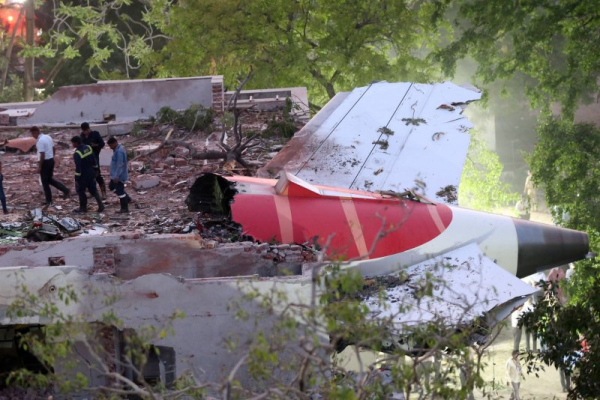

Air India CEO Campbell Wilson came out Monday to defend the former state-owned airline amid intense speculation surrounding its worst ever non-terror related crash when a fully-laden London-bound Boeing 787 came down in a built up area just beyond the perimeter of Ahmedabad airport. File Photo by Hanif Sindh/UP | License Photo
Mechanical or maintenance issues have been ruled out as the cause of last month’s deadly Air India crash that killed all but one of the 242 passengers and crew aboard and many more on the ground, the airline’s CEO claimed Monday.
Campbell Wilson told airline staff in an internal memo that the preliminary investigation had found no mechanical or maintenance faults with the aircraft or its engines and that all the airline’s Boeing 787s had been checked since the June 12 crash and found to be airworthy.
He also said the pilot and co-pilot in the cockpit of Flight 171 had passed breathalyzer testing as they came on duty and that no medical issues had been flagged with either man.
Campbell urged staff to refrain from “drawing premature conclusions” given that the investigation, which was being led by India’s Aircraft Accident Investigation Bureau, was still in its very early stages.
The comments came as the industry was reeling over the AAIB’s preliminary report released on Friday, found that switches controlling fuel to both engines were in the “cutoff” position immediately before the aircraft lost all power shortly after takeoff.
The mystery over how the switches came to be flipped from “run” has fueled speculation over what could have led to that scenario and if the crash could have been averted, with the pilots’ union saying its members were being scapegoated without evidence and families demanding investigators share more of what they know.
“Instead of focusing on such interpretations, I suggest we note that the preliminary report found no mechanical or maintenance issues with the aircraft or engines, and that all mandatory maintenance tasks had been completed. There was no issue with the quality of fuel and no abnormality with the take-off roll,” said Wilson.
“Until a final report or cause is tabled, there will no doubt be new rounds of speculation and more sensational headlines. We must nevertheless remain focused on our task and be true to the values that have powered Air India’s transformation journey over the past three years,” he added.
South Korea became the latest country Monday to order its airlines to conduct urgent inspections of the cockpit fuel switches of Boeing aircraft in their fleets, following on from Ethihad, in line with a 2018 U.S. Federal Aviation Administration advisory bulletin referenced in the preliminary report.
The 2018 alert covering “some Boeing models,” warning a guard to prevent the switches being accidentally flipped had not been installed correctly, did not mandate airlines take any action was therefore not acted upon by all airlines.
The bulletin was issued after some operators of Boeing 737s reported that a lock that was supposed to stop unintentional movement of the fuel cutoff switches was incorrectly fitted in some aircraft.
Aerospace Global News said these switches were the same design across the Boeing model range, including in the 787 Dreamliner, but that no accidental shut-downs are ever known to have occurred.
A decision by Indian authorities not to allow the aircraft’s black boxes to be sent overseas for analysis has raised eyebrows amid intense scrutiny of India’s civil aviation sector following the disaster in the western city of Ahmedabad.
The Civil Aviation Directorate General, which is conducting a separate investigation focusing on safety standards, has issued warnings over repeated aircraft maintenance and inspection failings at Delhi and Mumbai airports.
The watchdog identified concerns regarding “ineffective monitoring and inadequate rectification action,” warning that the issues it had found were not isolated.
When aircraft were undergoing servicing, safety protocols and certain faults were ignored by some maintenance engineers who sometimes failed to adhere to scheduled maintenance tasks and checks, it said.
The International Civil Aviation Organization sets strict standards for aircraft maintenance, which is tightly regulated, but compliance and oversight is delegated to local officials on the ground in member countries.